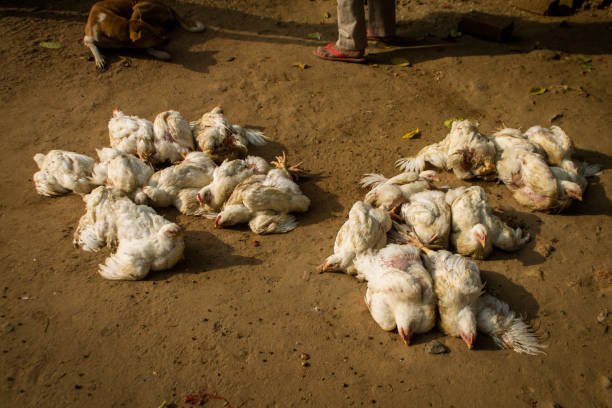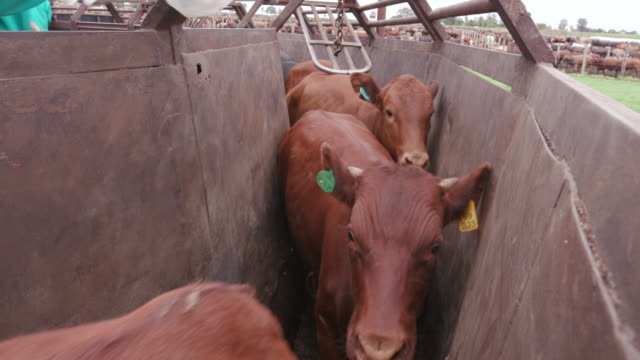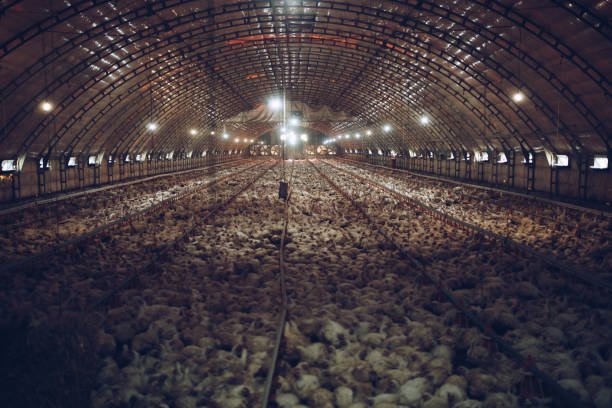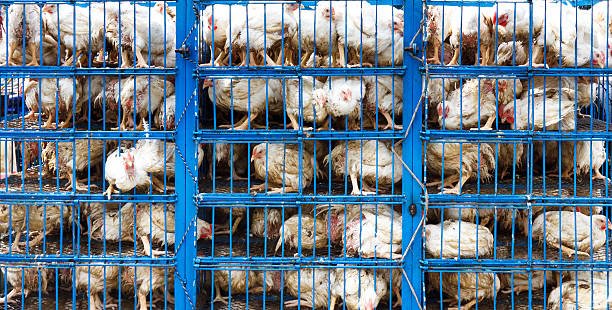The Dark Reality of Inhumane Farming Methods: A Look at Factory Farming in South Africa
The rise of factory farming has not only revolutionized agriculture but has also raised pressing ethical concerns about the treatment of animals in confined, unnatural settings. While factory farming may bring the promise of high-yield and efficient meat and dairy production, the methods employed are often severely inhumane. In South Africa, factory farming has become particularly prevalent, posing challenges that can no longer be ignored.
Inhumane Farming Methods: Factory Farming in South Africa
Factory farming in South Africa raises significant ethical concerns due to the inhumane conditions in which animals are kept, including overcrowding, poor ventilation, and a lack of natural sunlight. These animals are often subjected to chronic stress and are prone to diseases. Moreover, the use of growth hormones and antibiotics is widespread, posing potential risks to human health through antibiotic resistance. Factory farming also has environmental consequences, including pollution due to improper waste management. Despite existing laws like the Meat Safety Act and Animal Protection Act, weak oversight and legal loopholes allow many of these practices to continue. The issue is pressing and calls for urgent attention from consumers, regulators, and the industry itself.




Conditions that Evoke Distress and Suffering
Factory-farmed animals in South Africa are subjected to deplorable conditions that provoke chronic stress and suffering. Thousands of animals are crammed into small spaces, often in poor ventilation and without adequate access to sunlight. For example, it is not uncommon in some poultry farms to find hens confined in battery cages so small that they can’t even spread their wings. These conditions are not only ethically wrong but also contribute to the spread of diseases among animals, making them susceptible to infections.
Use of Growth Hormones and Antibiotics
The use of growth hormones and antibiotics is another common practice in South Africa’s factory farms, aimed at speeding up the growth rate of animals and preventing disease within overcrowded living conditions. However, this poses a threat to human health, as residues of these substances can make their way into the food chain. For instance, several piggeries in South Africa have been flagged for excessive use of antibiotics, contributing to antibiotic resistance, which is a growing public health concern globally.
Environmental Consequences
Factory farming is not only detrimental to animal welfare but also to the environment. The concentrated animal feeding operations produce a significant amount of waste, much of which is inadequately managed, leading to air and water pollution. In 2018, an investigation into Free State’s dairy farms revealed the uncontrolled disposal of animal waste into local water bodies, posing a serious environmental hazard.
Abuse and Neglect
Many undercover investigations have unveiled the grim reality of abuse that animals suffer in factory farms. Workers are often seen kicking, punching, and mistreating animals as a means to control them. It’s not uncommon for pigs, chickens, and cows to suffer from untreated wounds and illnesses due to negligence.
Legal Loopholes and Lack of Oversight
Despite laws that aim to ensure animal welfare, such as the Meat Safety Act and Animal Protection Act in South Africa, factory farms often exploit legal loopholes and benefit from lack of strict oversight. This makes it easier for them to continue operating in ways that are cruel to animals and risky to human health.
List of Inhumane Farming Methods
- Overcrowding: Animals are often packed tightly into confined spaces, inhibiting their natural movements and causing stress and injury.
- Lack of Veterinary Care: Many factory farms neglect to provide adequate medical treatment for sick or injured animals.
- Debeaking and Tail Docking: Painful procedures like debeaking chickens and tail docking in pigs are commonly done without anesthesia.
- Forced Molting: In the egg industry, hens may be starved to restart their egg-laying cycle, a practice that is extremely stressful for the animals.
- Gestation Crates: Sows are kept in narrow crates where they can’t turn around, lie down comfortably, or engage in natural behaviors.
- Artificial Growth Hormones: Animals are often injected with growth hormones to make them grow faster, leading to various health issues for the animals.
- Overuse of Antibiotics: The indiscriminate use of antibiotics to promote growth or to prevent disease in crowded conditions contributes to antibiotic resistance.
- Inadequate Waste Management: Poor waste management practices can lead to the spread of disease among animals and environmental pollution.
- Lack of Natural Light: Animals are often kept in conditions where natural light is absent, disrupting their natural living conditions and contributing to stress.
- High-Speed Slaughter: The push for efficiency often leads to poorly managed, high-speed slaughtering processes that can result in ineffective stunning and inhumane deaths.
Conclusion
The escalation of factory farming in South Africa is a multi-faceted issue that extends beyond the scope of animal cruelty to include public health risks and environmental degradation. It’s a grim picture that demands urgent attention and action from consumers, policymakers, and industry stakeholders alike. While factory farming may be a solution to meet the growing demand for meat and dairy, it should not come at the cost of ethical and humane treatment of animals. If the inhumane aspects of factory farming continue to be overlooked, it may be too late to reverse the damage to both animals and our ethical sensibilities.



